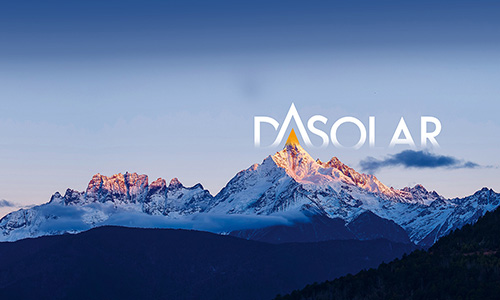DAS Solar Honored with RETC PVMI Overall Highest Achiever Award for Exceptional Product Performance
2025-06-12
Shanghai, Jun. 12, 2025 - DAS Solar, a leader in N-type PV technology, has been honored with the Overall Highest Achiever Award in the latest PV Module Index (PVMI) released by the Renewable Energy Test Center (RETC). This prestigious recognition underscores the company's outstanding performance in module quality, performance, and reliability. The award ceremony was attended by Ms. Camille Sherrod, Head of Project Management at RETC, and Mr. Hu Yang, General Manager of DAS Solar's Quality Center.

As a globally respected authority in renewable energy engineering, RETC has been at the forefront of independent testing and certification since its founding in 2009. The organization works closely with manufacturers, developers, and investors to assess a wide range of clean energy products, including PV modules, mounting systems, trackers, power electronics, and energy storage solutions—using some of the industry's most advanced and rigorous testing standards. RETC's evaluations help improve product bankability, market readiness, and long-term performance, supporting the development of a more secure and sustainable energy future.
The RETC PVMI program is one of the most demanding assessments in the industry. It focuses on three core performance categories: aging resistance, mechanical durability, and electrical performance. Over the course of six months, modules undergo more than a dozen stress tests across multiple metrics, including UV exposure, temperature cycling, hail impact, static and dynamic loading, and low-light response. Only manufacturers that deliver consistent, high-level performance across all categories are eligible for the Overall Highest Achiever Award, making it one of the highest recognitions of product excellence.

In the latest round of evaluations, DAS Solar's N-type modules emerged as a top performer. Under high-irradiance and high-UV conditions simulating extreme desert and plateau climates, the modules demonstrated superior aging resistance and long-term stability, which makes them ideal for deployment in harsh environments. In mechanical tests, the modules withstood large-diameter hail and complex load combinations, showcasing exceptional robustness and reliability against weather events such as typhoons and heavy snow.
The modules also performed impressively under low-light and high-temperature conditions—two critical indicators of real-world power output. DAS Solar's N-type modules maintained strong energy yield during early mornings, late afternoons, and overcast conditions, effectively extending daily generation hours and maximizing energy harvest. In high-temperature testing, the modules exhibited a low power temperature coefficient of -0.28%/℃, outperforming conventional modules. A smaller absolute coefficient translates to less output loss in hot climates, which delivers greater power gains and improved economic returns for system owners.
DAS Solar's success in the RETC PVMI assessment is backed by its comprehensive and disciplined quality control system. From raw material procurement to manufacturing and final inspection, every stage of the production process is closely monitored to ensure product consistency and reliability. Receiving the Overall Highest Achiever Award not only affirms the company's commitment to excellence, but also reinforces its dedication to delivering superior photovoltaic products and solutions to customers worldwide.
In the future, DAS Solar will continue to lead with N-type technology as its foundation. The company remains focused on expanding the application of N-type modules across all scenarios, while advancing module efficiency, reliability, and long-term value. Through sustained innovation and quality-driven development, the company is committed to accelerating the global energy transition and contributing to a cleaner, low-carbon future for all.







 浙公网安备33080302000236
浙公网安备33080302000236